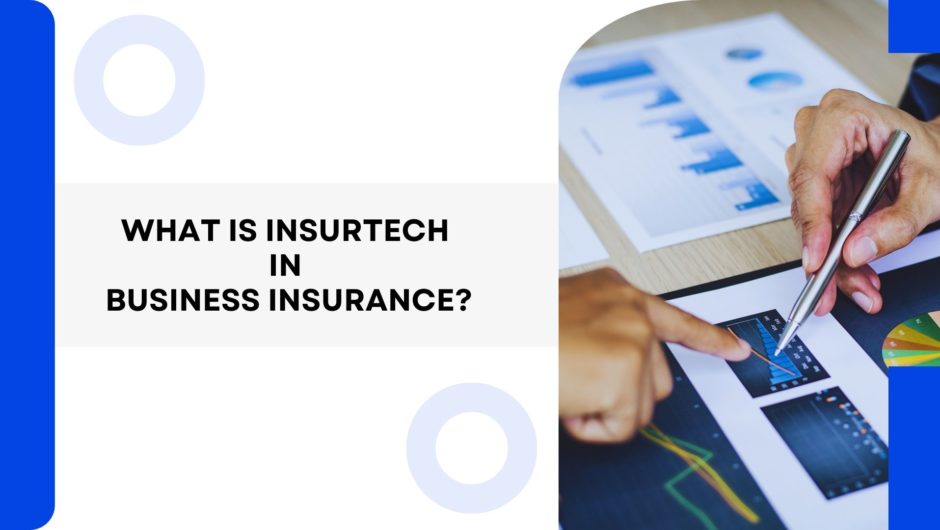The integration of artificial intelligence (AI) has a transformative force, reshaping traditional approaches and driving unprecedented innovation. As technology continues to evolve, AI-powered solutions are revolutionizing how individuals and institutions manage their finances, offering personalized insights, automated processes, and enhanced decision-making capabilities. From predictive analytics to algorithmic trading, AI is empowering financial professionals to navigate complex markets with greater precision and efficiency. This introduction sets the stage to explore the latest trends and advancements in AI-driven financial planning and wealth management, unlocking new opportunities for growth and prosperity.

Top 7 Trends in AI-Powered Financial Planning and Wealth Management are:
1. Personalized Financial Advice
Personalized financial advice, driven by AI algorithms, revolutionizes traditional wealth management by tailoring strategies to individual needs and goals. Through the analysis of extensive financial data, including income, expenses, assets, liabilities, and risk tolerance, AI-powered platforms provide holistic insights into clients’ financial situations. These algorithms consider various factors such as age, life stage, investment preferences, and long-term objectives to offer customized recommendations that optimize financial outcomes. By leveraging machine learning techniques, these systems continuously adapt and refine their advice based on evolving circumstances and market conditions, ensuring relevance and accuracy over time.
AI enables advisors to deliver proactive guidance, alerting clients to potential opportunities or risks and recommending appropriate actions to capitalize on or mitigate them. This personalized approach fosters deeper client engagement and trust, as individuals feel empowered to make informed decisions aligned with their unique financial aspirations. Furthermore, AI-driven personalization extends beyond investment strategies to encompass comprehensive financial planning, including retirement planning, tax optimization, estate planning, and more, thereby addressing the diverse needs and complexities of clients’ financial journeys.
2. Automated Portfolio Management
Automated portfolio management, facilitated by AI-driven robo-advisors, represents a paradigm shift in wealth management, offering efficient and personalized investment solutions to a broad spectrum of investors. By leveraging advanced algorithms, these platforms analyze clients’ risk tolerance, investment goals, time horizon, and market conditions to construct and rebalance diversified portfolios tailored to individual preferences. The automation of portfolio management tasks, such as asset allocation, fund selection, and risk management, streamlines the investment process, reducing human error and bias while optimizing performance.
Robo-advisors offer transparency, accessibility, and cost-effectiveness, democratizing access to professional investment management services traditionally reserved for high-net-worth individuals. Through continuous monitoring and optimization, these systems ensure portfolios remain aligned with clients’ objectives and adapt to changing market dynamics. Furthermore, robo-advisors often integrate tax-loss harvesting strategies and automatic dividend reinvestment to maximize after-tax returns and minimize investment expenses. The user-friendly interfaces and digital platforms provided by robo-advisors empower investors to track portfolio performance, adjust investment preferences, and receive real-time insights conveniently.
3. Predictive Analytics
Predictive analytics is reshaping financial planning and wealth management by leveraging AI and machine learning algorithms. To forecast future market trends, customer behavior, and investment opportunities. By analyzing vast amounts of historical and real-time data, predictive analytics models identify patterns, correlations, and anomalies to make informed predictions about future outcomes. These insights enable financial professionals to anticipate market movements, identify potential risks, and capitalize on emerging opportunities with greater accuracy and efficiency.
Predictive analytics empowers advisors to offer proactive guidance to clients. Alerting them to potential changes in their financial circumstances and recommending appropriate actions to optimize their portfolios. Additionally, financial institutions use predictive analytics to enhance customer engagement and retention. By personalizing offerings, anticipating client needs, and delivering targeted recommendations. Furthermore, predictive analytics models continuously learn and adapt from new data, refining their predictive capabilities over time and improving decision-making processes. Ultimately, predictive analytics serves as a powerful tool to help navigate the complexities of the financial markets and unlock new opportunities for growth and prosperity.
4. Natural Language Processing (NLP)
Natural Language Processing (NLP) is revolutionizing by enabling computers to understand, interpret, and generate human language. In the context of financial services, NLP-powered algorithms analyze vast amounts of unstructured textual data from sources such as news articles, social media, earnings reports, and regulatory filings to extract valuable insights and sentiment analysis. By deciphering market sentiment, NLP algorithms can gauge investor sentiment, assess market dynamics, and predict potential shifts in asset prices. NLP facilitates the automation of client communication through chatbots and virtual assistants. Financial institutions to offer personalized advice, execute transactions, and provide customer support in real time.
NLP enables financial advisors to extract key information from client communications. Such as emails and meeting transcripts, to better understand client preferences, goals, and concerns, thereby enhancing the quality of advice and service delivery. Overall, NLP empowers financial professionals to harness the power of language data to make more informed decisions. Enhance customer engagement and drive better outcomes for clients. As NLP technologies continue to evolve, they hold the potential to transform the way financial planning and wealth management. They conducted, unlocking new possibilities for efficiency, accuracy, and innovation in the industry.
5. Fraud Detection and Security
Fraud detection and security have become paramount with AI-powered technologies playing a crucial role in identifying and mitigating fraudulent activities. By analyzing vast datasets and detecting patterns indicative of fraudulent behavior. AI algorithms can identify suspicious transactions, account access attempts, and anomalies in real-time. Machine learning models trained on historical fraud data can continuously adapt and improve their accuracy. Financial institutions to stay ahead of evolving threats.
Additionally, AI-driven fraud detection systems utilize advanced anomaly detection techniques to flag potentially fraudulent activities. Such as unusual spending patterns or account behavior. Biometric authentication technologies, including facial recognition and voice recognition, enhance security measures by providing robust identity verification methods. Furthermore, AI-powered fraud detection systems enable financial institutions to automate fraud investigation processes, reducing manual effort and response times while improving efficiency and accuracy. Financial firms can bolster their defenses against fraud, safeguard customer assets, and maintain trust and confidence in the integrity of their services.
6. ESG Investing Integration
ESG (Environmental, Social, and Governance) investing integration is transforming financial planning and wealth management. As investors increasingly prioritize sustainability, ethical considerations, and corporate responsibility alongside financial returns. AI-driven tools and analytics are instrumental in analyzing ESG factors and integrating them into investment decision-making processes. By leveraging vast datasets and advanced algorithms. Financial professionals can assess the environmental impact, social responsibility, and governance practices of companies, sectors, and investment opportunities. AI-powered ESG scoring models enable investors to evaluate the sustainability performance of portfolios and individual assets. Facilitating the selection of investments aligned with their ESG objectives.
Natural language processing (NLP) techniques enable sentiment analysis of news articles, social media, and corporate reports to gauge public perception and reputation risks related to ESG factors. Additionally, machine learning algorithms can identify ESG-related risks and opportunities, enabling proactive risk management and investment strategy adjustments. AI plays a pivotal role in enabling investors to integrate sustainability principles into their portfolios effectively. Driving positive societal impact while seeking competitive financial returns.
7. Quantum Computing Applications
Quantum computing applications are poised to revolutionize by offering unprecedented computational power. To tackle complex optimization, simulation, and risk analysis problems. Unlike classical computers, quantum computers quantum bits or qubits to perform calculations using quantum mechanics principles. Enabling exponentially faster processing speeds and enhanced problem-solving capabilities. In the context of financial services, quantum computing holds immense potential to revolutionize portfolio optimization. The exploration of vast investment strategies and asset allocations in real-time. Quantum algorithms can enhance risk management by simulating complex market scenarios and assessing potential outcomes with greater accuracy and efficiency.
Quantum computing applications can accelerate the development and optimization of machine learning models for predictive analytics. Financial professionals to anticipate market trends and customer behavior with unprecedented precision. Moreover, quantum cryptography techniques offer enhanced security measures, safeguarding sensitive financial data and transactions against potential threats from quantum computers. Quantum computing technologies continue to advance, financial institutions are exploring ways to harness their transformative potential. To gain a competitive edge, drive innovation, and unlock new opportunities for growth and efficiency in financial planning and wealth management.
Conclusion
In conclusion, trends in AI-powered financial planning and wealth management are reshaping the industry. Offering personalized insights, automated processes, and enhanced decision-making capabilities. From predictive analytics to natural language processing, these advancements empower investors and advisors alike to navigate complex markets with greater efficiency and accuracy. AI continues to evolve, its integration into financial services promises to drive innovation. Improve outcomes and democratize access to sophisticated wealth management solutions. Embracing these trends will be crucial for staying competitive and meeting. The evolving needs of investors in the dynamic landscape of financial planning and wealth management.
Also Read:
- What is Dividend Investing and How to find Dividend Stocks?
- How do new mobile banking apps help access savings account better?
- Financial Advisor in India – The Best for your Financial Planning?
- What is inflation and how it impacts your financial plan?

Hello, I am Tanisha Kriplani, graduated in computer science from Delhi University. I am passionate about web content writing and have a strong interest in Data Analytics and Data Engineering.












